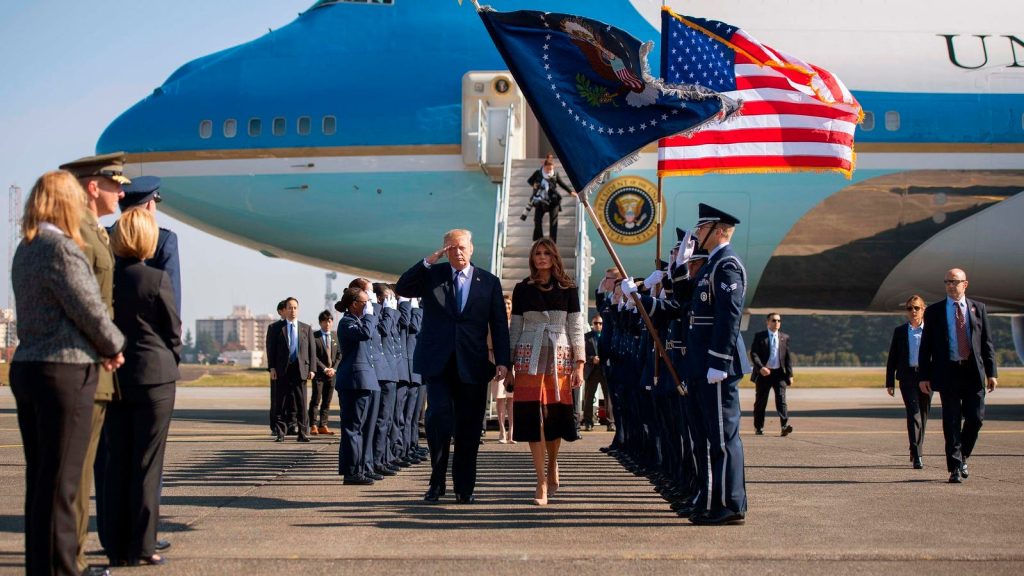A second Trump presidency presents a complex landscape for Asian stakeholders, marked by both opportunities and considerable turbulence. While some sectors like cryptocurrency may experience deregulation, attracting Asian investment and fostering innovation, the overall geopolitical environment promises to be unpredictable and potentially disruptive. Trump’s emphasis on job creation through greenfield investments could be appealing, but his protectionist stance, as evidenced by his opposition to acquisitions by foreign companies, suggests a challenging environment for certain types of investments. Additionally, anticipated tariff differentials between China and other Asian nations could create opportunities for supply chain arbitrage, although the long-term stability of such strategies remains uncertain given the volatile nature of Trump’s trade policies.
The fundamental shift anticipated under a second Trump administration revolves around the declining centrality of the United States in the Asia-Pacific region. While the Biden administration has spoken of rebuilding American influence, the underlying structural trends point towards a region increasingly dominated by Asian powers and less reliant on the U.S. Trump’s policies are expected to accelerate this trend. His disinterest in multilateral trade agreements and his emphasis on burden-sharing in security arrangements further diminish the traditional role of the U.S. as both a security guarantor and an economic leader. This creates a vacuum that Asian nations are likely to fill with their own regional solutions, furthering the decline of American influence.
Despite widespread concern about China’s growing assertiveness, a U.S.-led anti-China coalition appears unlikely to materialize under Trump. While many Asian nations are wary of China’s power, they are simultaneously deepening their economic ties with the country. Trump’s focus on the “China threat” as the primary lens through which to view Asia risks alienating potential partners who seek a more balanced approach. The U.S. focus on containing China through sanctions and export controls, often applied extraterritorially, places Asian businesses in a difficult position, caught between competing pressures from Washington and Beijing. This coercive approach further complicates the U.S.’s ability to build effective partnerships in the region.
The political landscape within America’s key Asian allies adds another layer of complexity. Many of these countries face internal political instability, ranging from minority governments to declining leadership approval ratings. This instability makes them less reliable partners for the U.S. and more susceptible to domestic pressures that may conflict with American strategic objectives. Trump’s transactional approach to foreign policy, including potential tariff threats and demands for increased security contributions, could exacerbate these internal tensions and strain alliances. The volatile political situations in countries like Japan, South Korea, the Philippines, and even Australia create significant challenges for building a cohesive and effective strategic partnership against China.
India stands out as a potential exception in this complex scenario. With a strong government and a positive relationship between Modi and Trump, India offers a unique opportunity for the U.S. to cultivate a powerful strategic partnership. Shared concerns about China’s rise provide a solid foundation for cooperation in areas like security and technology. However, potential friction points remain, particularly in areas such as immigration, trade, and technology sharing. While Trump has previously embraced cooperation with India, his “America First” approach and the growing technonationalism within his administration could limit the scope and depth of future collaboration, particularly regarding sensitive technologies.
Perhaps the most significant area of disruption will be the U.S.-China relationship itself. Both countries are increasingly securitizing their economic and technological policies, viewing interdependence as a vulnerability. This trend is expected to continue under Trump, leading to heightened tensions and an increasingly adversarial dynamic. For businesses operating in this environment, the unpredictable nature of Trump’s deal-making and the lack of structured dialogue mechanisms between the two countries create significant uncertainty. China’s efforts to “de-Americanize” its foreign policy, offering alternative partnerships and incentives to other countries, further complicate the U.S.’s efforts to build a unified front against China. Even Taiwan, a traditional recipient of bipartisan support in the U.S., could find itself caught in the crossfire, potentially used as a bargaining chip in the broader U.S.-China rivalry. This increasingly volatile and unpredictable environment presents substantial challenges for businesses, investors, and innovators operating in the Asia-Pacific region.










